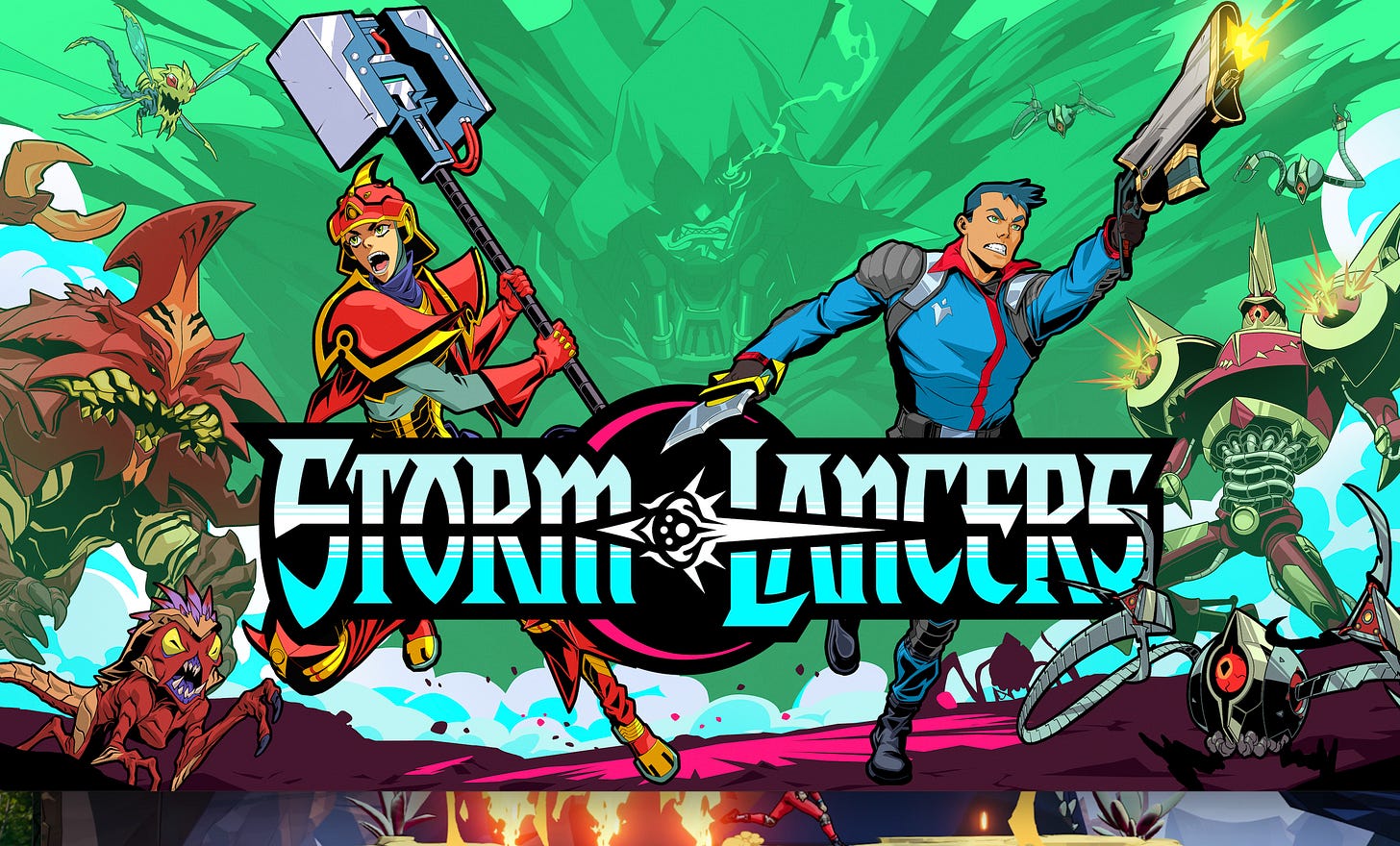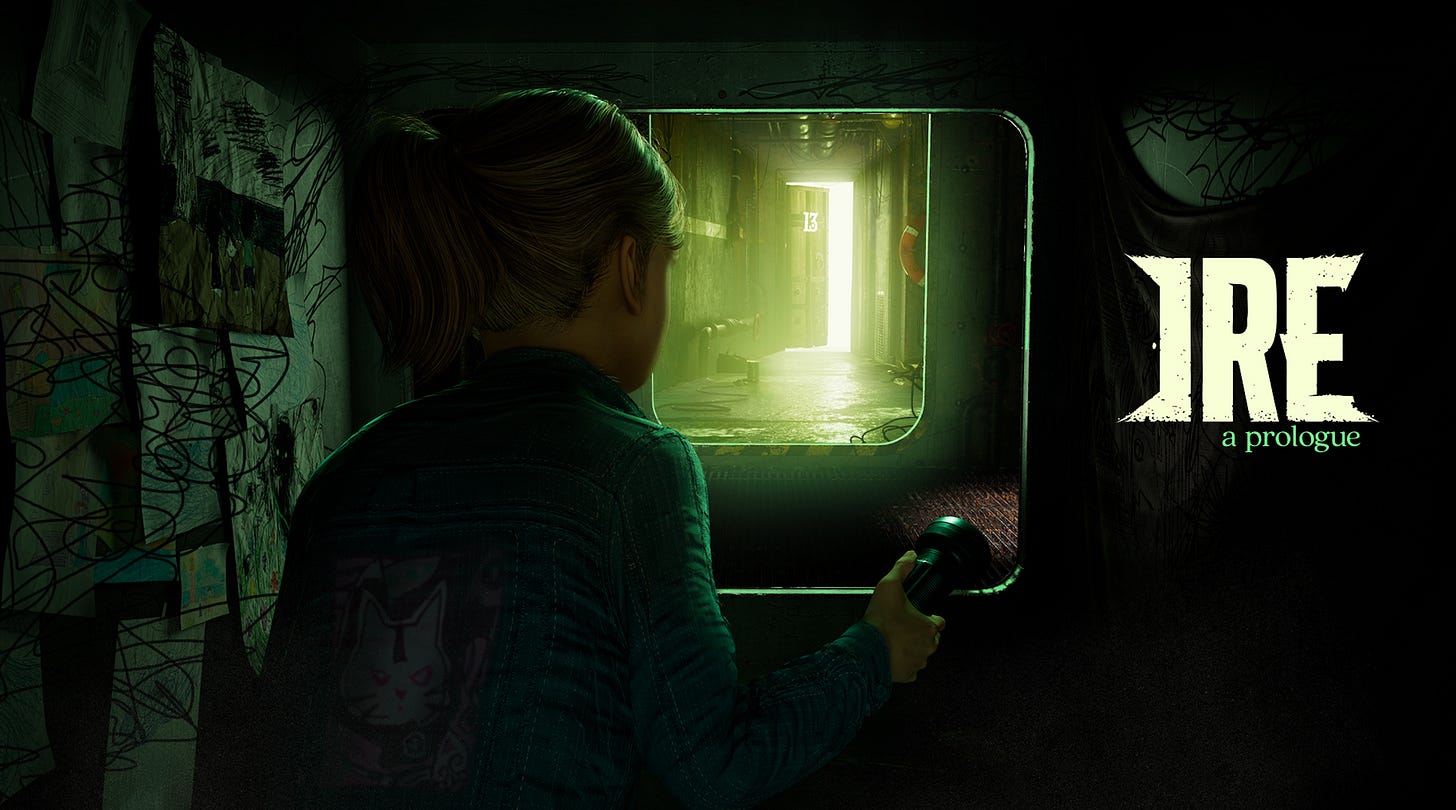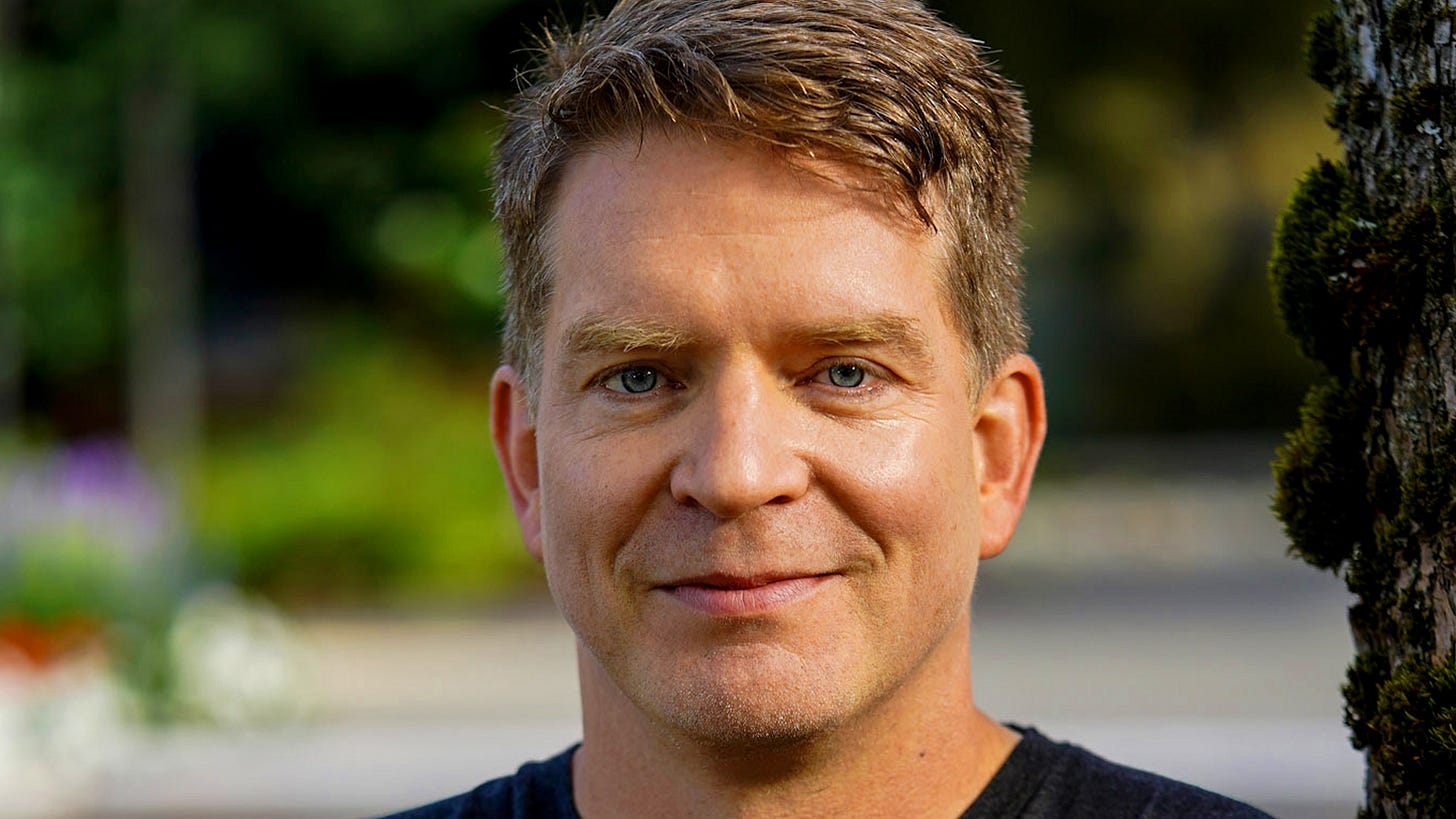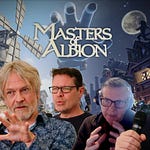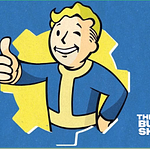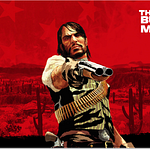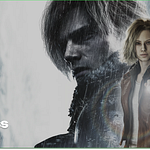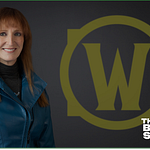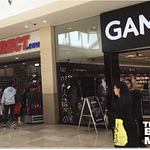Listen now on Apple, Spotify or YouTube
In This Edition
ProbablyMonsters CEO Harold Ryan on…
- Abandoning its AAA plans
- Making a game in 18 months
- The importance of keeping a team together
If you’ve not heard of ProbablyMonsters, then allow me to explain why its story is so important.
The company was formed in 2016 by former Bungie CEO Harold Ryan. It declared it wanted to change the environment in which AAA games were made, and to overhaul the traditional publishing and development model. It was all with the worthy aim of creating a sustainable future for game creators.
The organisation was made up of several semi-independent AAA studios, including Cauldron, Battle Barge, Firewalk and Hidden Grove. At the centre was ProbablyMonsters itself, which handled IT, finance, security and so on.
The whole concept attracted $250 million in investment during its Series A funding round, and the attention of numerous major AAA publishers.
Nine years later, and ProbablyMonsters has revealed its debut games. The first is Storm Lancers, a rouge-like, side-scrolling action game for Nintendo Switch. The other is Ire: A Prologue, a first-person psychological horror game for PC. Both games are out this year, both priced at $19, and neither are the AAA titles we were expecting.
“When we started, we had the vision of building a place that would be sustainable and would provide a better place for developers to work,” Ryan told me.
“It’s the whole reason I started doing this. We were structured as a bunch of independent studios with the idea of building games that would be signed to traditional old-school AAA publishers. While we still have the same goals around developers working in an environment that feels respectful and predictable, we are taking a very different path to it. We’ve gone through a bunch of hard decisions getting here. We’ve had to cancel games and transition teams. When the industry went through its big evolution from 2020 until today, we’ve had to evolve, too.
“If we were talking back in 2020, I would have said: ‘We’ve got AAA publishing deals signed. We’re building big games, and they’re built that way’. Today, for the industry and for us, one-size-fits-all isn’t the right way to go.”
A new vision
The industry has changed, and nothing highlights that more than the fate of one of ProbablyMonsters’ previous studios: Firewalk. The developer was formed in 2018 and began working on a project with PlayStation. Things were going so well that PlayStation acquired Firewalk in 2023. But its debut game, Concord, was a commercial disaster when it released last year. The game and its studio were subsequently closed down.
Ryan said that ProbablyMonsters had already started shifting its strategy before Concord’s release.
“You could see the environment shifting in the entire industry even leading up to that terrible outcome,” he said.
During our interview (which you can listen to above), Ryan defended his decision to commit so strongly to AAA games back in 2016, as it seemed like the safest path at the time.
“The bigger budgets would allow us to have good benefits, good quality-of-life and more predictability. And, certainly, it’s a space that I understood pretty well based on my background. We had good success signing AAA deals, and we had great projects under way… but the market moved.”
“I believe game developers deserve stability and respect, but our business model has to be sustainable, or it's not a job.”
So what happened to those deals?
“Publishers scaled back their number of third-party deals,” he explained. “The funding commitments have gotten harder to come by. And, honestly, there are two fewer AAA publishers today than there were in 2017 with the acquisitions at Microsoft.
“But the real driver, without casting blame, is the consumer behaviour doesn’t match the one-size-fits-all model. When you look at a game and look at an audience, it’s critical to pick the right path to get that experience to that audience. The learning my more experienced team members have taken from our days of shipping highly-polished, high featured, AAA games, is that holding onto a [focused game idea] doesn't mean you have to spend a lot on it. Knowing when you've accomplished that vision and are ready to give it to a consumer and see if it works, is the real challenge.”
He added: “When we started going through all of the games we could imagine bringing to market and stopped trying to put it into one-size-fits-all [box], it became clear to us that there were games that we should ship next holiday. And then it’s like… ‘it's June, how can we ship a game next holiday?’ And that’s a different problem to solve than if it was a three or seven-year game.”
Ryan said that ProbablyMonsters is still working on AAA projects, or ‘long-term games,’ as he calls them. And outside of the games announced here, the company is working on an open world RPG, a co-op soulsike and an extraction base builder.
All of these games are of different sizes, and that’s true of its two debut projects. Ire: A Prologue is a ‘mid-term’ title. It’s still a budget-priced game that can be finished in under 10 hours, but there are plans to do more. Ryan likened it to a pilot for a TV series.
Meanwhile, Storm Lancers is the definition of a short-term project. Its entire development cycle will have been less than two years.
“I’ve always believed that shipping games is an important part of the learning cycle,” Ryan said. “Whether you’re the QA team, IT team, development team or the release manager... getting a game into the hands of players in the way that works to their delight… it’s not a simple process.
“That cycle from concept into consumer’s hands, and then looking back and asking what you would do differently, that’s a really important cycle of learning. I had the benefit early in my career to being in a place where I shipped over 30 games in ten years. I think we shipped five Halo games in ten years. A lot of our strength [at Bungie] was that we had been through the cycle so many times, we knew how to respect each other when we had to make hard decisions that got us to the point of successfully getting to a consumer. If you don’t have that experience as a team, you’re missing a key part of getting there.
“It’s why we have to chase sustainability. You have to keep your team together to run through that learning cycle.”
Storm Lancers is focused on a specific audience. “We would love everyone to love everything we ever build,” Ryan said. “But it’s a core focus for us that we’re picking an experience and an audience, and then building something that is approachable for them. And that audience having delight in the game is enough to keep that team moving onto the next game. We’re already green lit the next two short development cycle games for next holiday.”
Indeed, Ryan said the aim is to release “multiple games a year.”
“There are people doing this that have a ton of experience in shipping games. [Storm Lancers general manager] Jim Veevaert has been in the industry a long time. He has shipped a lot of games. He’s one of the main ones looking at how we ship a game every year. Part of looking at that goal is about picking someone who has the expertise to get there. We’re very focused on the leadership side.
“When you look at Ire: A Prologue, the GM for that is Matt Case. He was the head of interactive at HBO for a few years. He’s the lead writer on it and has written for me for 15 or more years. He is amazing and prolific. And the other teams that are in development have similar humans who we won't name today. Their goal is to pull up a new generation of developers as they bring their games to market.
“My hope is two years from now we're looking at a bunch of games in market, without giving it a hard number, and to have really established something that's sustainable.”
Focus, Focus, Focus
ProbablyMonsters no-longer operates multiple independent companies. The various dev teams still have their own identities, Ryan said, but they all now sit under the ProbablyMonsters business. Ryan told us that it was necessary to keep the teams separate when they were working with third-party publishers, as publishers like to make sure “their peanut butter isn’t mixing with other people’s chocolate”. But now ProbablyMonsters is handling the publishing internally, that’s no-longer something to worry about.
During our chat, the key words that kept coming up was focus and sustainability. It’s about working out what’s really required in order to deliver the right experience to the people they’re targeting.
“The first good, healthy question to ask in game development is… do I need to do R&D to bring this idea to market? Or can I do it with the existing tools and technology? And can I bring this game vision to life on today’s platforms?
“[Storm Lancers] is shipping for Switch 1. It is fully compatible with Switch 2, but when we started developing this less than 18 months ago, and thought let’s ship this next holiday... Well, let’s pick a target we know, let’s pick an audience we think is going to love this, and I think we’re there. That doesn’t mean we aren’t actively looking at all the platforms. But that focus is a critical part of sustainability.”
This is radically different to the ProbablyMonsters of even five years ago. But one that Ryan felt compelled to shift towards as the industry transformed.
But what about that other vision? The one about creating a positive workplace for its 200 employees, and changing the environment in which games are made? Nothing undermines the goal of creating a sustainable games company than having to lay-off employees and cancel projects before releasing a single title.
“It hasn't changed that goal, but it has certainly put some heavy marks on the board against: ‘Hey, you haven't proven it yet’,” Ryan said.
“When you transition team sizes, game types, development schedules, and even when we started, we were pretty geolocated in and around Bellevue, Washington for all of our teams. And today, we have some geolocated teams, but we have a lot of people that are working from all over. That unfortunately meant we didn't necessarily have the right job for everyone that we had employed. That was the hardest part of getting to the realization that we had to drastically evolve to match where we felt the industry was going.
“Our investor group is a 100% behind our cultural goals. They want us to have a long-running, sustainable business. They want it to be profitable as well, but they're fully supportive of the cultural goals. But we're in such a different form today that it has been painful. We built teams that were fully aligned with us culturally. And coming to the point of not having roles for them was, personally and for the company, very painful.”
Ryan concluded: “The North Star is still there. I believe game developers deserve stability and respect, but our business model has to be sustainable, or it's not a job. And getting to that sustainable model is going to take learning. And by shipping two games, we're going to have the right opportunity to learn.”
Thank you for reading. We’ll be back later in the week with more breaking stories ahead of our Gamescom coverage, which kicks off next Thursday. See you then!



